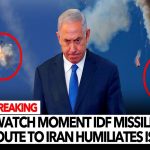Ehud Barak, the former Prime Minister of Israel, recently published an opinion piece in Time where he concludes that Iran could be “days” away from reaching what he terms “threshold nuclear status”, namely possessing enough enriched uranium to manufacture a single nuclear device. Barak acknowledges that, even if Iran were to accumulate the required stock of enriched uranium to cross this threshold, it would still need 18-24 months “to polish their skills treating metal uranium and packing it into a missile warhead.” This, according to Barak, is a mere technicality which Iran can overcome at any time. Iran, Barak contends, “is about to cross the point of no return in becoming a member of the ‘nuclear club’. Left unsaid by Barak is the fact that Israel is, itself, a member of this ‘club’, having built a nuclear weapons program outside the framework of the nuclear non-proliferation treaty (NPT), which Israel has not joined. Hypocrisy, it seems, knows no bounds.
There has always been a difference between capability and intent when assessing Iran’s nuclear ambitions. For its part, Iran has consistently maintained that while it seeks to master the nuclear fuel cycle, inclusive of large-scale enrichment of uranium, it does not intend to use this capability for military purposes. Indeed, Iran has linked this policy to the core foundation of what it stands for as a nation—its Islamic faith. The Islamic Republic of Iran has had two Supreme Leaders in is history—Sayyid Ruhollah Musavi Khomeini and Sayyid Ali Hosseini Khamenei—both of whom have made it clear through their words and deeds that a nuclear weapon is anathema to their Islamic beliefs, and as such forbidden under Islam as practiced in Iran.
The West might be dismissive of such public posturing by the national leaders, having grown accustomed to the common practice of its own leaders to say one thing and do another. However, in a nation such as Iran, where religious leaders are empowered by their respective hawza’s, or seminary followings, to issue fatwas, or religious decrees, derived from their juristic beliefs as expressed through a published risalahamaliyah, or manual of practical applications of their religious beliefs as they apply to society, the concept of a Supreme Leader attaching religious significance to a decision, only to do something else, is unthinkable.
While the United States, during the Obama administration, did make passing reference to the importance of the fatwa’s issued by Iran’s Supreme Leader about nuclear weapons, its policies never reflected that this understanding was anything more than superficial, a throw-away line used to distract from policies designed to undermine Iran rather than promote its nuclear energy ambitions. Israel has never engaged in such deceptive practices—it has maintained from the start that Iran is pursuing a nuclear weapons program and has gone so far as to define “nuclear weapons capability” as being linked to the existence of a viable uranium enrichment capability, since, using Israeli logic, a nuclear weapon cannot exist without such capacity.
Barak, in his opinion article, ignores the role played by Israel in manufacturing a case against Iran regarding its nuclear intent. Barak denigrates the Joint Comprehensive Plan of Action, or JCPOA—the nuclear agreement between Iran, Russia, China, Germany, the United Kingdom, France, the European Union and, lastly, the United States, finalized in July 2015 in which Iran agreed to unprecedented restrictions (temporary) and monitoring inspections (permanent) in exchange for having economic sanctions linked to its nuclear program lifted, as failing to go far enough to limit Iran’s nuclear capabilities. He ignores the fact that, as part of this agreement, the international community, with Iran’s cooperation, thoroughly investigated a dossier of allegations regarding Iran’s military intent when it comes its nuclear programs that had been assembled primarily based upon Israeli “intelligence” (key aspects of which turned out to be pure fabrication) and found these accusations to be wanting. Seen in this light, the restrictions imposed on Iran by the JCPOA were based upon the reality of its program, as opposed to the malign fantasy being promulgated by Israel.
And while Barak decries the decision by the United States to withdraw from the JCPOA in 2018, his chief complaint is that neither the United States nor Israel prepared a “Plan B” for this eventuality—a large scale military strike targeting the totality of Iran’s nuclear infrastructure. Barak’s “solution” isn’t to find a way to work with Iran to create confidence in the international community regarding Iranian intent, but rather to focus on preparing sufficient military capability so that Israel would be able to eliminate Iranian nuclear capability altogether with a unilateral strike.
This, of course, is no solution at all.
At some point, the West must accept the inevitability of Iran’s nuclear ambition, limited in scope as it is to purely civilian purposes, and inclusive of a uranium enrichment capability derived from its mastering of the nuclear fuel cycle in its entirety. This program can either be monitored by the international community in accordance with the provisions contained within the JCPOA, or in a less intrusive manner per Iran’s existing obligations under the NPT. The choice is the West’s to make. Either way, however, Iran will exercise its rights under the NPT to pursue a peaceful nuclear program. And no amount of threats from either Israel or the United States can stop this.
by Scott Ritter
Scott Ritter is a former US Marine Corps intelligence officer and author of ‘Disarmament in the Time of Perestroika: Arms Control and the End of the Soviet Union.’ He served in the Soviet Union as an inspector implementing the INF Treaty, served in General Schwarzkopf’s staff during the Gulf War, and from 1991 to 1998 served as a chief weapons inspector with the UN in Iraq. Mr Ritter currently writes on issues pertaining to international security, military affairs, Russia, and the Middle East, as well as arms control and nonproliferation. Follow him on Telegram @ScottRitter










